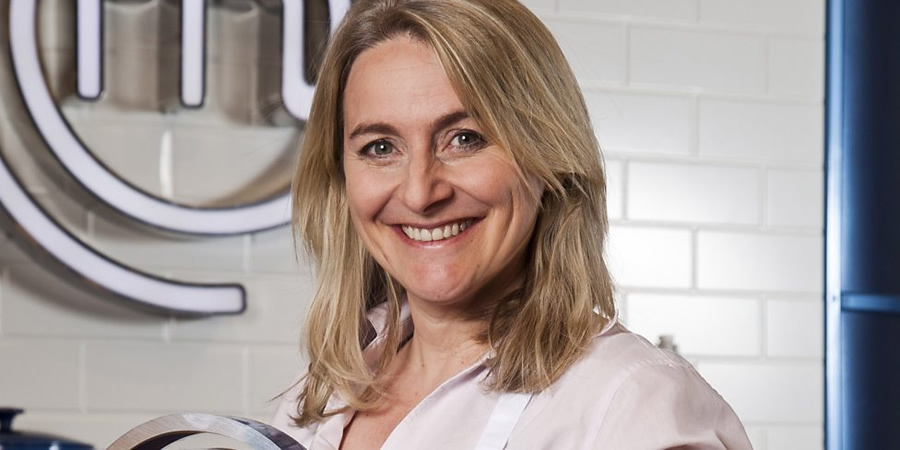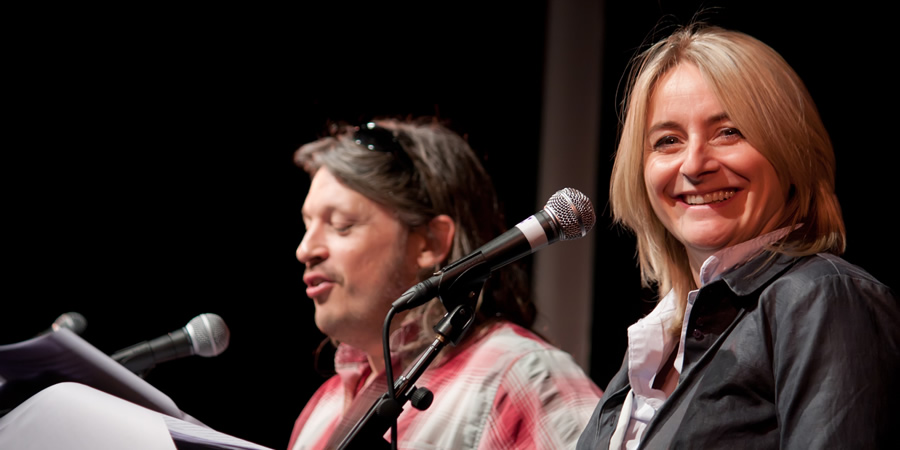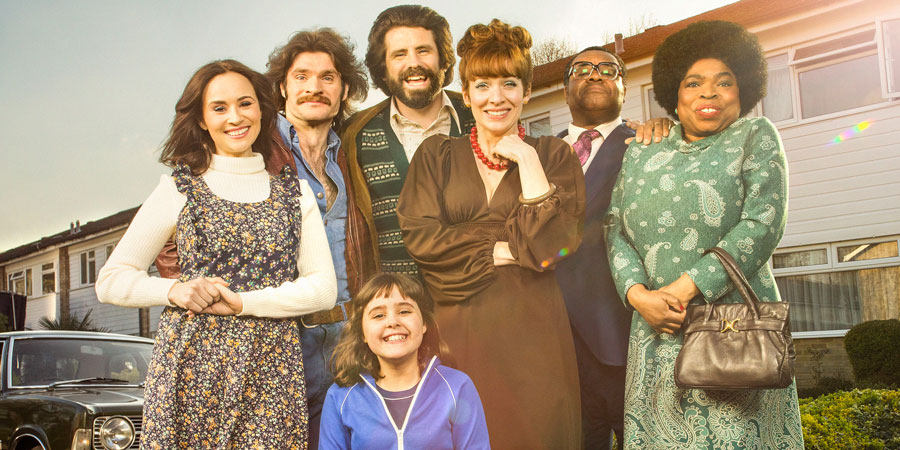Emma Kennedy on writing, part 1

Emma Kennedy is a prolific writer, whose credits include The Sunday Format, It's Been A Bad Week, Katy Brand's Big Ass Show, This Is Jinsy, Strange Hill High, Waffle The Wonder Dog and her original sitcom The Kennedys. She has written thirteen books, including the Wilma Tenderfoot series, Shoes For Anthony and The Tent, The Bucket And Me, on which The Kennedys was based. Her latest memoir is Letters From Brenda.
Emma, firstly, thank you so much for talking to us. You're a screenwriter, novelist, script editor and performer. How did this eclectic career come about?
More by accident than design. I used to be a lawyer but always harboured a deep desire to be a writer.
I left my legal practice primarily to do that but I was sidetracked by various pairs of jazz hands and ended up presenting and performing for ten years. When I finally realised I wasn't doing what I left the law to do, I knuckled down.
I'm a great believer in being the master of your own destiny. If you want to do something, get on with it.

Which do you enjoy more, writing or performing?
Writing gives me more professional satisfaction, while performing feels like the greatest wheeze.
It astonishes me you can dress up, muck about with your mates and get paid for it.
Writing feels like a job, performing never did. It was like being on Larks Ahoy, the cruise ship. But if I had to choose one thing to do over the other, I'd take writing every time.
What are the key differences between writing for the screen and writing a novel?
Pace. The speed at which you have to move the plot along in a screenplay would put Formula 1 to shame.
Screenplays are a plunge into a cold pool, novels are a long, luxurious bath.
Do you find the skill-sets are easily transferable?
I find that I have no difficulty with dialogue in my novels. I think visually too, which helps.
If anything I have to stop and remember I'm writing a novel so I put in what I like to call "the long bits".

When you generate an idea, does it come fully formed as a novel or screenplay or sitcom? Or do you spend time trying to decide which form it's best suited to?
I tend to start with a sentence. If I can tell a whole story in that one sentence then I know I'm on to something. The rest is just filling it out.
I've got a couple of projects at the moment that have switched - one was a book but is now a screenplay and I have another that was a screenplay but is now a book.
Novels allow you a more decadent trip with your characters but it can be a business decision as well. Sometimes, it's easier to get away a book than a film.
In Part 2, Emma discusses storylining, and gives us her number one writing tip. Read Part 2
This article is provided for free as part of BCG Pro.
Subscribe now for exclusive features, insight, learning materials, opportunities and other tools for the British comedy industry.

